The third-annual Top Fifty* comes to you with a twist. Despite the heavy historical weight of a few cities and regions, squash has, for well more than a half century, been a national game. After the last state without a court—Arkansas—put one in Bentonville in 2001, you could play in every state in the Union. In some places today, squash is still a niche sport: under-reported, existing on the liminal edges of fitness clubs, on a couple of converted racquetball courts. You know, vegetable jokes. But the grassroots leaders in those states are indistinguishable to their more celebrated brethren on the coasts. They have an implacable passion for the game and the community around it.
—The Editors
*It is really the Top Fifty-One because we include the federal city of Washington. Although it still has no voting representation in Congress, DC has more courts and more play than most of the fifty states.
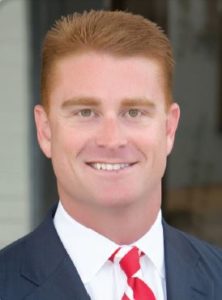 Alabama
Alabama
Scott McClanahan
An outfielder at the University of Alabama, McClanahan was drafted by the New York Yankees and spent a season in their minor league system. A few years later, one day at work at Morgan Stanley in Tuscaloosa, he asked a co-worker to go play racquetball. The colleague, from London, said, “I play squash.” They went to the two hardball courts in the Student Recreation Center at the university and McClanahan got hooked. He’s since played in tournaments in San Diego, New York, Chicago, Charleston and Atlanta and has been the Alabama representative on the board of the Southeastern SRA. He’s also working on putting softball courts—a first for Alabama—in the Benjamin Barnes YMCA in Tuscaloosa.
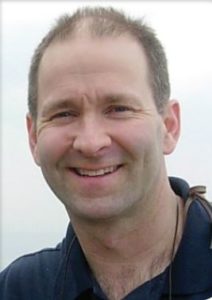 Alaska
Alaska
Mark Alger
Mark Alger, from Tacoma, Washington, played for Team USA in the 1979 World Team Championships in Brisbane; in Detroit in February 1981 he won the National Singles, the first person from west of the Mississippi to win the title. A pilot for Alaska Airlines, Alger moved to Palmer, a town an hour north of Anchorage, and in 2002 he and some neighbors, in a squash version of a barn raising, built a stand-alone squash court behind his house. The Moosewood Squash Court is a key club and has the only twenty-one foot court in Alaska. It hosts box leagues and tournaments and has racquets, goggles and even sneakers available to borrow. Alger now lives in the San Juan islands in Washington state, but the club is still going strong, with a new family, the Mike and Melissa Jensen’s, living in Alger’s home and managing the court.
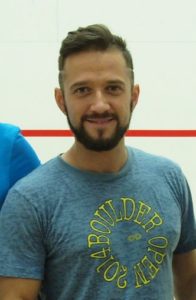 Arizona
Arizona
Lako Salaiz
Heraclio Salaiz Estrada—known to everyone as Lako—is a galvanizing force in Arizona. From Chihuahua, Mexico, Salaiz went to UTEP and moved to Phoenix in 2010 to work as an IT specialist. He turned professional in March 2014 and has reached world No.257. Now thirty, Salaiz has run a half dozen $1,000 PSA satellite squash tournaments in the Phoenix area, including a couple recently at the Ocotillo Village Health Club & Spa in Chandler. The $25 million club opened in April 2015 with two squash courts, and Salaiz is helping build out the squash program.
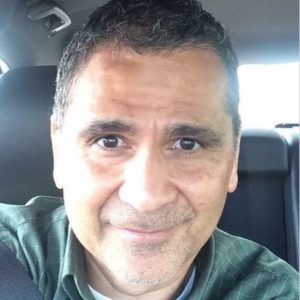 Arkansas
Arkansas
Steve Fuentes
For decades, the only state in the country without a single squash court was Arkansas. Walmart corrected that ignominious fact in 2001 when it built the Walton Life Fitness Center on its corporate campus in Bentonville. Twelve thousand employees have access to the center, which boasts six indoor and six outdoor tennis courts (over 1,500 tennis racquets get strung each year), six racquetball courts (two are used for Wallyball) and one squash court. Steve Fuentes, an optimization manager for Walmart’s food distribution centers, was a racquetball player since learning the game as a twelve-year-old at the old Supreme Court Racquetball Club in El Paso. He switched to squash four years ago. Now fifty, he is topping the ladder at Walmart, and thus the state.
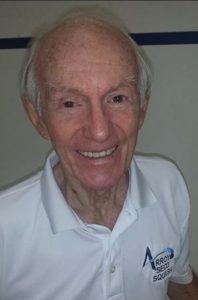 California
California
Bob Hanscom
An ageless godfather of squash in southern California, Bob Hanscom grew up in New England, was a top junior ice figure skater and after college became an elite gymnastics coach. Thirty years ago he moved to Los Angeles and switched to working as a squash teaching pro, first for seven years at the University Club of LA and then fifteen at the LA Athletic Club. He was also a top referee, top-ranked masters player and innovative tournament promoter (he ran the 1998 National Singles on a portable court). He retired in 2008 but soon started helping convert racquetball courts at the Arroyo Seco Racquet Club in South Pasadena. Now with three courts, the program is booming and Hanscom, who just turned eighty, has hired four assistants to handle all the lessons.
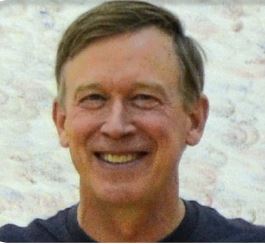 Colorado
Colorado
John Hickenlooper
In Colorado they love the governor. This past summer Hickenlooper (even with a fear of heights), rappelled twenty-nine stories down a Denver office building. That was just the start. He went mountain biking, played tennis, spoke at the Democratic National Convention, came out with a bestselling memoir (The Opposite of Woe: My Life in Beer and Politics), and, in his second term as governor managed the state of Colorado. And he played squash. How was your summer?
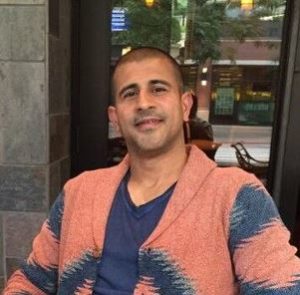 Connecticut
Connecticut
Kumail Mehmood
The Karachi-born Mehmood reached world No.77 back in 1999. Two years later he moved to the States. Now in Connecticut, he owns a small empire of squash clubs including Sportsplex and Squash Alley in Stamford and Squash1 in Norwalk and he also leases courts at the Saw Mill Club East in Mount Kisco. His group has one of the most unusual names: FASSP Squash (Fitness Accuracy Strength Speed Perception) and a great success with training juniors.
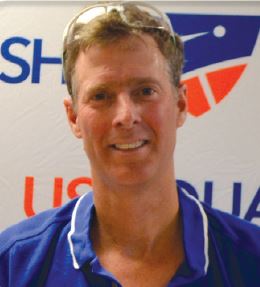 Delaware
Delaware
Edmund Chilton
The lanky leftie is known for his sunny disposition, his lethal reverse corner and his stalwart sportsmanship: he was given the inaugural Robert W. Callahan Men’s Sportsmanship Award in 2014. This spring he and Andrew Slater captured a second-straight National Doubles 50+ title, as well as the Canadian 50+. Chilton, for the last quarter century at Wilmington Country Club, has run the National Junior Doubles since 1991 and two dozen pro doubles events and this winter is hosting a pro singles tournament. He is also a founding board member of First State Squash, the urban squash program that launched in Wilmington last month.
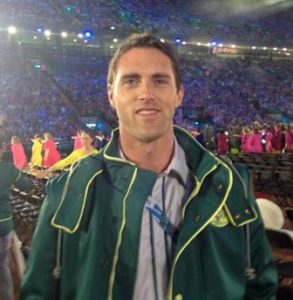 Florida
Florida
David Palmer
The iconic Aussie, a two-time world champion, is now the most famous squashman in Florida. In 2010 he moved from Boston to Orlando and started his squash academy at RDV Sportsplex Club. With only two courts in an out-of-the-way squash state, he’s created arguably the world’s hottest pro locale, with a dozen pros (like Leo Au, Steve Coppinger, Max Lee and Miguel Rodriguez) training there under his eyes. Three years ago he also led a group that bought Black Knight’s U.S. business.
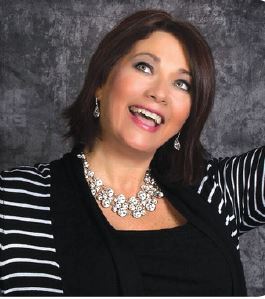 Georgia
Georgia
Danielle Maur
The vigorous leader of squash at the Life Time Fitness, Maur makes her third straight appearance in the Top Fifty. Life Time is the broadest and deepest squash chain in the world: forty of its 120 clubs have courts. That is a total of 114 courts in nineteen states. Next year a new club with four courts is opening in the heartland of American squash, the Philadelphia suburbs. Maur helps direct the Grand Prix, five pro events in four states with over $75,000 in prize money and nearly a thousand amateurs participating.
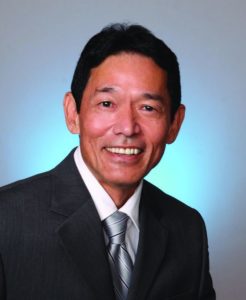 Hawaii
Hawaii
Ken Kawamoto
Kawamoto is the director of squash at the Honolulu Club. Thirty-three years ago he stopped by the club and watched a guy with a long-handled racquet hitting a small black ball precisely against the wall. He asked the guy what the sport was. “Squash,” came the answer. Kawamoto was hooked. He’s now the pro at the Honolulu Club, which has thee courts and is the only place in the Aloha State to say hello to squash.
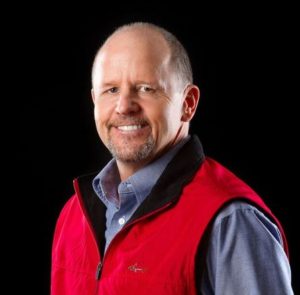 Idaho
Idaho
Don Helander
Twenty-five years ago Helander bought Sandpoint West Athletic Club. The northernmost squash club in the continental U.S., Sandpoint has two racquetball converted squash courts with an enthusiastic core group of players. Originally a handball player himself, Helander links players up with the nearest squash club, the Spokane Club in eastern Washington, which is two hours away.
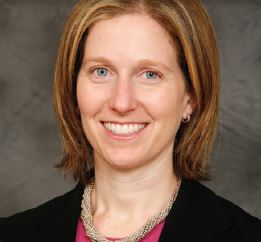 Illinois
Illinois
Jacqueline Moss
A Princetonian—she captained the Tigers her senior year in 1992-93—Jackie Moss was a founder of Metro Squash, the urban squash program in Chicago a dozen years ago. She chaired the program’s board for many years and was instrumental in the building of their stunning new eight-court, 21,000 square foot facility. Moss serves on the finance, audit and compensation committee at US Squash.
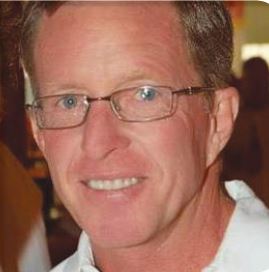 Indiana
Indiana
Howard May
May can. The founding president of the Indiana SRA in November 2015, May, sixty-one, is a certified public accountant who is helping line up the numbers to spur a squash resurgence in Hoosier land. It’s been more than a dozen years ago that the Indianapolis Athletic Club closed and May is pushing the game on converted racquetball courts and looking for new courts. He is also the captain of the Indianapolis side in the annual Hahn Cup.
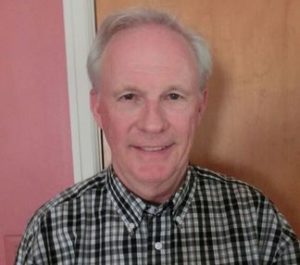 Iowa
Iowa
Greg Gadient
Born and raised in Davenport, Gadient learned squash from his father on hardball courts at a YMCA. Now sixty-four, he plays in events all around the Midwest and is an active member of the Madison Squash Workshop in Wisconsin. In his home state, he leads a group of players on the two hardball courts at the University of Iowa in Iowa City.
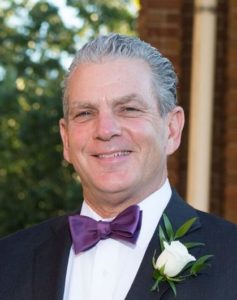 Kansas
Kansas
William Padek
Ad astra per aspera is the motto of Kansas—to the stars through difficulties. Bill Padek is one of the cast of characters developing squash in the heartland. Wichita, Manhattan, Lawrence, Kansas City and Overland Park all have courts. Three years ago Jahangir Khan appeared in Overland Park for an evening of play and talk; a year later Kevin Klipstein, the CEO of US Squash came to Kansas City for a town-hall gathering. It is a United Nations scene, with players from more than a dozen countries. The difficulties are still there, but Kansas is blazing into the firmament.
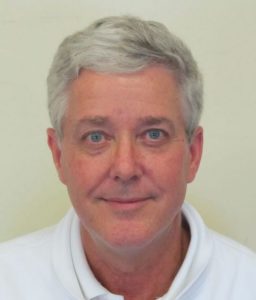 Kentucky
Kentucky
Jim Martin
Jim Martin fell in love with squash as a student at Brown, and in the mid-1970s after returning home to Louisville he started playing in squash events in Kentucky and across the country. He has participated in almost every available annual inter-city competition including the Hahn, Browne and Goodman Cups and the Copa Wadsworth. Twice he’s been chair of the Pendennis Club’s athletic committee and for the past two decades has been an officer with the Kentucky SRA, organizing tournaments and exhibitions and mentoring young players.
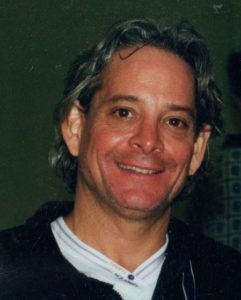 Louisiana
Louisiana
John Jelanko
Jack Jelenko picked up squash in 1966 when he arrived at the Berkshire School. He then played squash all four years at Colorado College, captaining the team his senior year. In 1983 he started Partners Wine Marketing Group, which represents family wineries around the world and has sponsored events like the Tournament of Champions, the Hashim Khan the Netsuite and the National Singles, as well as regional tournaments.
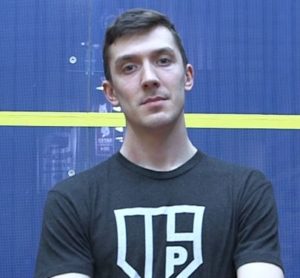 Maine
Maine
Barrett Takensian
One of the youngest people in the Top Fifty, Takesian graduated from Bowdoin in 2012. Having worked at SquashBusters for two years, he got hooked on urban squash and has been trying to bring it to Maine, but with a twist: his brainchild, Portland Community Squash, will run an urban program (called Rally Portland), adult play and local schools all under one roof. Takesian has raised over $1.2 million from a thousand donors and purchased a former Portland synagogue that he is repurposing to house four courts, five classrooms, a gym, yoga studio and locker rooms. It opens in December.
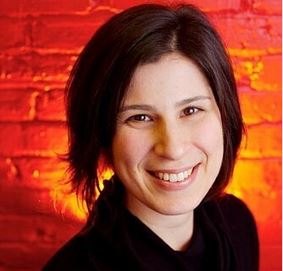 Maryland
Maryland
Abby Markoe
Markoe helped start SquashWise, Baltimore’s urban squash program in 2007 and has been its executive director ever since. She grew up playing squash on the courts at Princeton and was captain of George Washington’s team during their inaugural season in 2002-03. Markoe is one of two women serving on the board of the National Urban Squash & Educational Association.
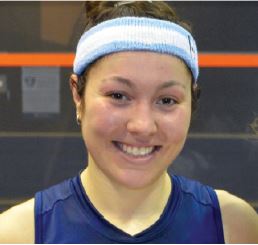 Massachusetts
Massachusetts
Amanda Sobhy
For the third year in a row, Sobhy makes the Top Fifty, as everyone anticipates her making the top five in the world rankings. Her ranking has skyrocketed from No.19 in September a year ago to No.7 now as she twice reached the finals of a World Series event and became the first American-born player to qualify for the end-of-season PSA World Series Finals. Look for breakthrough victories this year for the twenty-three year-old.
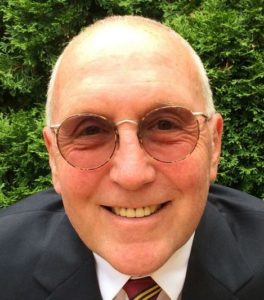 Michigan
Michigan
John Dunwoody
Dunwoody is presently the treasurer, doubles league co-director and doubles tournament co-director for Michigan Squash. And he has been the president since 2011, guiding the SRA into a new era of growth. A key leader at the Detroit Athletic Club, Dunwoody started playing at the DAC long enough ago to have been taught the game by Dave Talbott. He has chaired national tournaments and numerous committees at the DAC and still, at age sixty-seven, plays doubles.
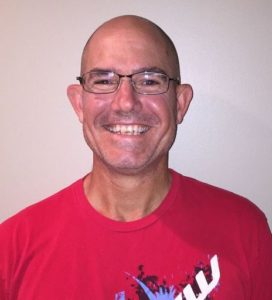 Minnesota
Minnesota
Jeff Mulligan
Mulligan never takes a mulligan. First profiled in this magazine’s January 2002 issue, Mulligan had an unusual squash journey to Minnesota. He grew up in Reno, was a national junior racquetball champion and then an All American pole vaulter at Arizona State. He picked up squash twenty years ago in Denver, became the top-ranked American on the pro doubles tour and worked at the Racquet & Tennis Club in New York and the Piedmont Driving Club in Atlanta before landing five years ago at the Commodore Squash Club in St. Paul. With Scott Stoneburgh, he won the Canadian national doubles 40+ this past spring, adding to his previous two U.S. national titles. Mulligan has injected new life into squash in the Twin Cities with the Beyond Walls Squash Week, a massive amateur, pro singles and pro doubles event that has replaced the old Indian Summer tournament.
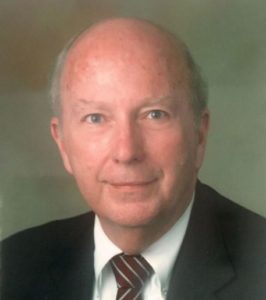 Mississippi
Mississippi
David Mcnair
McNair first played squash at the Missouri Athletic Club and when he left St. Louis for Jackson, Mississippi, he searched out courts. The only one he could find was at Millsaps College. The Maurice H. Hall Activities Center opened in 2000 with three racquetball courts, one of which is now a squash court. McNair began giving lessons to faculty and staff at Millsaps, and now seventy-seven, he continues to coach and looks towards creating a club team on campus.
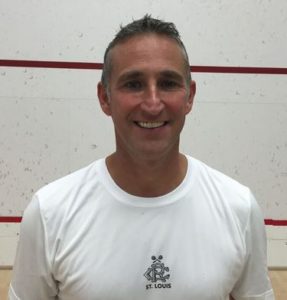 Missouri
Missouri
Michael Puertas
An Englishman, Mike Puertas reached world No.38 before moving to St. Louis. He is the coach of the Washington University club team (last season the women came in thirty-six, the men fifty-one) and runs the burgeoning program at the Missouri Athletic Club. He’s worked with former world No.1 Natalie Grainger and World Series MVP David Freese. Since 2004 Puertas has directed pro singles and doubles events in St. Louis and four years ago started One Sport, a racquet company.
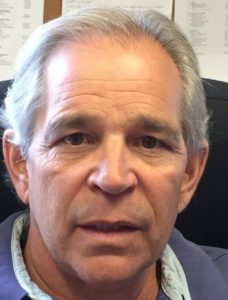 Montana
Montana
Steven Martini
Originally from Syracuse, Steve Martini played competitive racquetball as a junior. In medical school his classmates showed him squash. When he moved out to Montana, he eventually found fitness clubs with converted racquetball courts and set up a deal: in exchange for a free membership, he would give free squash lessons to members of the clubs. Whether in Bozeman, Missoula, Bigfork and White Fish, Martini is the Pied Piper of squash in Big Sky Country. Sixty years-old, he even got to the state finals four years ago.
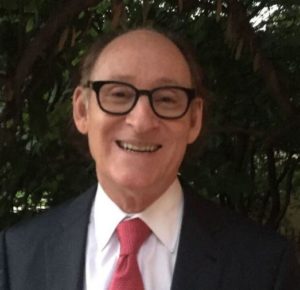 Nebraska
Nebraska
David Slosburg
Born and raised in Omaha, David Slosburg boasts a 5-1 record when attending a Nebraska Cornhusker national championship bowl game. He was member of the Penn squash team in the early 1970s. A longtime supporter of the game and a member of the Kingsley-Knox Founders Club at US Squash, Slosburg has been an avid masters hardball player for decades.
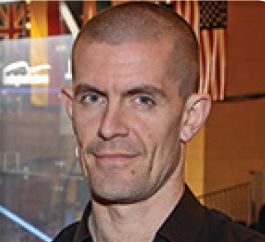 Nevada
Nevada
Gus Hansen
The Bellagio in Las Vegas is the sometimes home of Gus Hansen, the high-stakes poker player. He has the most Twitter followers in this year’s list (51,000) even though he’s been off Twitter for the past two years. Instead he’s been competing in racketlon tournaments (where you play badminton, squash, table tennis and tennis) and lost in the quarters of the world racketlon championships a few years ago.
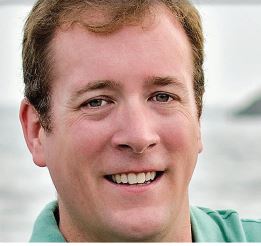 New Hampshire
New Hampshire
Chris Smith
The squash coach at St. Paul’s School, Smith is starting a non-profit youth squash program. Using SPS’s courts and working with the Concord city recreation department, it is meant to be like Little League for Concord-area kids, with clinics, lessons, camps and tournament travel. It isn’t an urban squash program—Smith worked at SquashBusters for four years—but will offer great squash opportunities of New Hampshire youth.
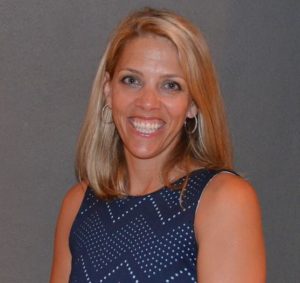 New Jersey
New Jersey
Narelle Krizek
The Aussie sparkplug, Krizek first picked up a racquet when she was four at her parents’ club in Brisbane. Her brainchild, the women’s pro doubles tour, is still going strong and she’s is still a top ten player. Krizek, along with her husband Rob, is the head coach at Lawrenceville School.
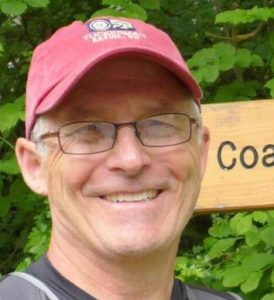 New Mexico
New Mexico
Walter Burke
Burke grew up playing squash—his father had been on the team at Wesleyan—and played at Bowdoin. After moving to Santa Fe in the 1980s, he first organized tournaments and junior clinics at El Gancho Fitness and more recently a men’s pro singles event at the Kiva Club, as well as the famous Kiva Classic amateur doubles tournament. Sixty-four, Burke has been the president of the New Mexico SRA since 1997.
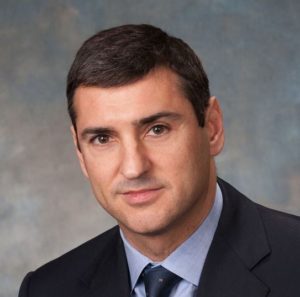 New York
New York
Guillermo Alvarez
Born in Spain and having lived previously in Brazil, Germany and Venezuela, Gui Alvarez moved to Buffalo a dozen years ago. He played squash in high school and college in Spain and returned to the sport in order to beat his brother-in-law who lives in Toronto. (Right now they are even.) He is the president and A and B league coordinator of the Buffalo SRA, helping run leagues, ladders, the city championship and membership services.
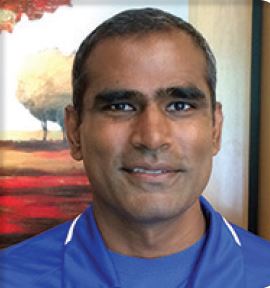 North Carolina
North Carolina
Karthik Sundermoorthy
The head coach of the squash club team at Duke, Sundaramoorthy grew up in Bangalore, India. He didn’t start playing squash until he was in graduate school in North Carolina. Once a member at Berwyn, when he returned south he tried to bring some of that Berwyn magic with him. Duke recently built two courts. Last year the Blue Devils had twenty-eight members on their team and came in fifty-seventh in the country, winning the H division at the nationals. Sundaramoorthy also teaches at the Life Time Fitness club in Cary.
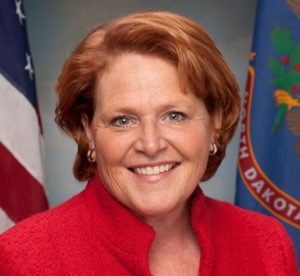 North Dakota
North Dakota
Heidi Heitkamp
The junior senator from North Dakota, Heitkamp is the only Democratic Party candidate to win a state-wide election in North Dakota in the past decade. Twice in Washington she has met with NUSEA students on their summer citizenship tour, talking with them about Native Americans, agriculture and the food industry. These conversations greatly have inspired the young men and women of the urban squash community
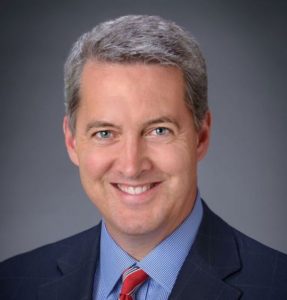 Ohio
Ohio
Neal Tew
Tew operates the largest squash club in the Midwest: the T Squash Academy. He grew up in Cincinnati and captained the team at Harvard. In 2013 he opened the T, a 501 (c) 3 non-profit with eight courts in an old racquetball club. The T hosts the city’s first scholastic squash league, a traveling tournament team and many events that have both exposed hundreds to the game and produced a national junior champion.
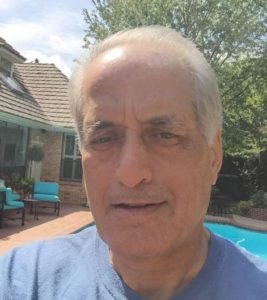 Oklahoma
Oklahoma
Jug Walia
The man with the best nickname and most improbable squash journey in the Top Fifty, Joseph Walia grew up in Kenya playing tennis. He moved to England for high school university, learning squash at the Edgbaston Priory in Birmingham. His nickname became Jug, as in going for the jugular. In the 1970s he lived in Toronto, playing at the Skyline Club—he twice played for Canada in the World Team Championships and in 1978 won the Canadian national softball title. In 1980 he moved to Oklahoma City and has been a leader there ever since. He helped run the Oklahoma City men’s pro singles event for seventeen summers, while continuing to capture U.S. masters titles: he now has seven.
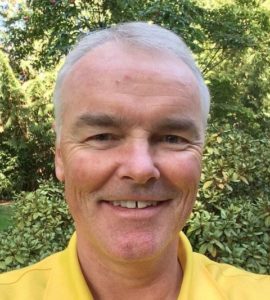 Oregon
Oregon
Anders Giltvedt
Giltvedt played team handball for the Norweigan national team in the 1970s, picked up squash and then to work on his lateral movement. In the 1990s in Portland, he took up squash again as a way to stay in shape during the damp Pacific Northwest winters. He joined the Multnomah Athletic Club and began to chair the Oregon state championships and pro events like the Oregon Open. The Portland City Squash League has awarded Giltvedt its annual Smigel Award.
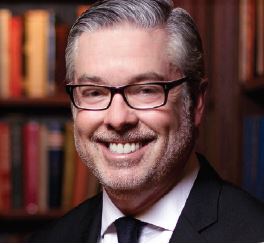 Pennsylvania
Pennsylvania
John Fry
One of two men to make the Top Fifty all three years, John Fry, the president of Drexel, just stepped down as chair of the board of US Squash. His three-year term was remarkable: the staff tripled in size, the annual budget jumped to over $4 million and technological advances, in particular Club Locker, helped make US Squash the leading national governing body in the world of squash. “How can I help?” is a question Fry often asks and then he does.
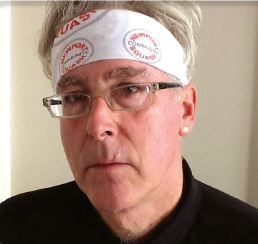 Rhode Island
Rhode Island
John Wilson
For sixteen years Wilson has coached the club team at Bryant University (the men have finished as high as forty-sixth in the nation). Born in Seattle, Wilson has twice reached the finals of a Masters draw at the National Singles and has been Rhode Island state champion in many age groups. He is also the owner of the key-club Newport Community Squash, carrying on the legacy of Sam Jernigan’s squash facility.
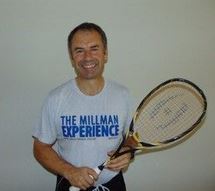 South Carolina
South Carolina
Richard Millman
He can be found leading intensive training sessions in a half dozen states around the country (and even overseas) but his base is in Charleston. In the past decade he has animated the squash at Kiawah, co-founded Chucktown Squash, Charleston’s urban squash program, taught at the Charleston Squash Club and started teams at Porter Gaud School and the College of Charleston.
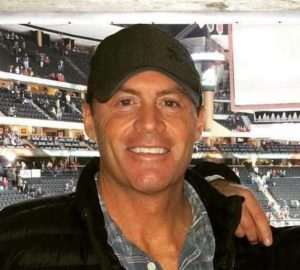 South Dakota
South Dakota
Dennis Thurman
Dennis Thurman, forty-five and a racquetball player, started playing squash eight years ago on the one court at the Sanford Wellness Center in Sioux Falls. Besides a single lesson from Julian Illingworth, he has been largely self-taught. He now travels to tournaments around the Upper Midwest. One thing he’s learned about the difference between racquetball and squash: he’s in much better shape.
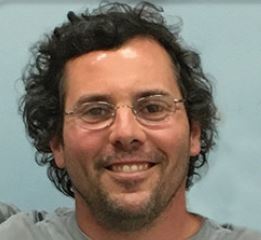 Tennessee
Tennessee
Mike Monen
The owner of a half dozen restaurants across the state, Monen just opened Scenic City Squash. A three-court facility in Chattanooga, Scenic City is now a focal point for the game in the region. Monen grew up playing tennis and started squash nine years ago on a converted racquetball court. The new club’s motto: “If you build it, they will boast.”
 Texas
Texas
Alistair Barnes
Barnes is the founder and chair of the board of Mission Squash. It is the first urban squash program to build squash courts situated inside a public school—he put in three courts and a classroom in an old gym at James S. Hogg Middle School in Houston Heights. Since 2014, his organization has introduced over 500 students to the game, as Hogg is the first public school in the country to offer squash as a physical education class on site. He has also started the first private school squash team in Houston. Barnes grew up in southern England, attended Cranbrook School and moved to Houston in 1994.
 Utah
Utah
Craig Bennett
Bennett runs Squashworks Racquet & Fitness Club. The six-court facility in Salt Lake City is the one of the premier squash clubs in the Rocky Mountains. Bennett knows what he’s doing: his grandfather, Harold Bennett, has been credited with bringing squash to Utah and his father, John Bennett, was the founder of the Utah SRA, director of the 1980 North American Open and played in more than sixty U.S. national championship tournaments.
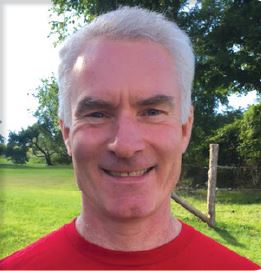 Vermont
Vermont
Steve Polli
With all the current talk of outdoor public squash courts coming to New York, Polli has to smile. In 1999 he built a court at Leddy Park in the north end of Burlington. Open-air, concrete, with a four-foot-high back wall, the court is still there and still being used, just like the nearby tennis and basketball courts. Polli grew up in Scotland and was a top junior (getting to the last sixteen in the British Junior Open U19). For years he’s also been a volunteer squash coach at Middlebury.
 Virginia
Virginia
Mark Allen
The catalyst for squash in Charlottesville, Allen has hosted three National Singles tournaments, numerous pro events and is gearing up for the World Masters in the summer of 2018. He is also the coach of the fast-rising Virginia Cavaliers squash team. Allen grew up in England, reached world No.41 and has coached in Guernsey, Washington, DC, San Francisco and Cape Town.
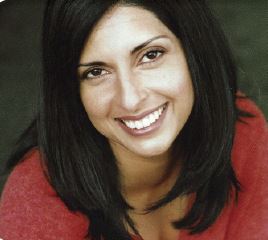 Washington
Washington
Shabana Khan
A member of the Seattle Khan family, Khan directed the 2015 Men’s World Championship, the first time the U.S. has hosted an adult world championship. A top player herself, having reached world No.23 and winning the National Singles in 2001, Khan coaches at the nine-court Pro Sports Club in Bellevue. This fall Khan will receive the Stewart Brauns Award for significant administrative contributions.
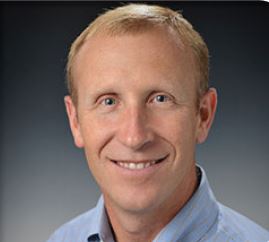 West Virginia
West Virginia
Doug Meek
Meek isn’t meek. He’s been playing squash for fifteen years in Charleston and runs the squash program at the Edgewood Country Club squash league, which has nearly a hundred participants on their two singles and one doubles court—the doubles league is especially active. He has helped arrange home-and-away matches across the Midwest, including Louisville, Cincinnati and Toledo.
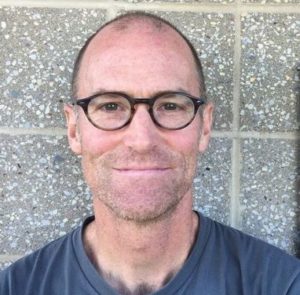 Wisconsin
Wisconsin
Damon Bourne
Bourne first took a flyer on squash while at the University of Dayton. In 1993 he moved to Wisconsin and played hardball on the university courts in Madison. In 2009 he opened Madison Squash Workshop. The first squash-centric health club in the state and the only place with twenty-one foot courts, the MSW has four busy courts. Bourne just started an after-school program with the East Madison Community Center.
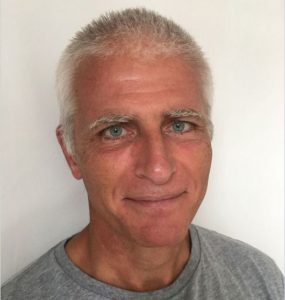 Wyoming
Wyoming
Kevin Luzak
The chair of the pro doubles tour, Luzak is active across the country. He is on the board of Chucktown Squash in Charleston, South Carolina, plays a lot at the Racquet & Tennis Club in New York and lives near Jackson Hole.
 District of Columbia
District of Columbia
Wendy Lawrence
Lawrence is the coach at George Washington and she’s pulled both her men’s and women’s teams into the top fifteen in the country. As chair of the women’s College Squash Association, Lawrence is continuing to play a key role nationally, something she’s been doing for nearly forty years now.





